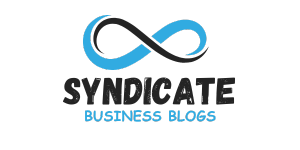how to start rental property business

Table of Contents
Investing in rental properties can be very profitable and fulfilling. It’s a great way to build wealth and earn passive income. This guide will help you start and grow a successful rental property business.
You’ll learn about the rental market, making a business plan, getting financing, and managing your properties. It’s all you need to know to make your real estate dreams come true.
Understanding the Rental Property Market Fundamentals
Starting your rental property business requires knowing the rental property market well. Look into current trends, property types, and local demand. This knowledge helps you make smart choices to boost your rental income and manage your properties effectively.
Current Market Trends and Statistics
The rental property market changes often. Keeping up with trends and statistics is key. These insights help you spot good opportunities and avoid risks.
Types of Rental Properties Available
The rental property market has many options. You can choose from single-family homes, apartments, or commercial spaces. Knowing the pros and cons of each helps you pick the right fit for your goals and skills.
Analyzing Market Demand in Your Area
Knowing what your local rental property market needs is vital. Look at population growth, job trends, and supply and demand. This helps you find the best areas and property types for steady rental income.
| Metric | National Average | Local Market |
| Average Rent | $1,500 | $1,800 |
| Occupancy Rate | 95% | 97% |
| Median Property Price | $300,000 | $400,000 |
Grasping the rental property market basics prepares you for success. It helps you make smart investments and build a strong rental property business.

Creating Your Rental Property Business Plan
Starting a rental property business needs a solid business plan. This plan is like a roadmap, showing your goals, who you’re targeting, and how much money you expect to make. It also covers your marketing and how you’ll run your business. A good business plan is key to success in the income property world.
First, decide what you want to achieve with your rental property business. Do you want to make money without working, grow your wealth, or reach a financial goal? Knowing your goals helps you make smart choices and track your progress.
Then, learn about your potential tenants. Find out what they need and want. This info helps you pick the right property, set the right prices, and market your business. Look at your competition and figure out what makes your business special.
Make a financial plan that shows your expected income, costs, and cash flow. Figure out how much money you need to start and how much you’ll spend each month. This helps you see if your business idea works and if you can get the money you need.
Lastly, plan how you’ll run your business. This includes managing properties, screening tenants, and taking care of maintenance. A clear plan keeps your business running smoothly.
Creating a detailed business plan boosts your chances of success. It shows you’re serious and ready for investors or lenders. Spend time on your rental property plan, and your dreams of making money from property can become real.
“A well-designed business plan is the foundation for a successful rental property business. It helps you stay focused, mitigate risks, and capitalize on opportunities.”
Financial Requirements and Funding Options
Starting your rental property business means understanding the financial side. You need to know about down payments, mortgage and loan choices, and budgeting. These steps are key to your business’s success.
Down Payment Considerations
The down payment is a big deal when buying rental properties. Lenders usually want 20% or more for traditional mortgages. But, there are other loans that need less money down, helping new investors.
Mortgage and Loan Options
- Conventional Mortgages: These loans have good rates and terms but need a big down payment.
- FHA Loans: Backed by the Federal Housing Administration, these loans have lower down payments. They’re great for those with less money upfront.
- VA Loans: For military members and veterans, these loans have no down payment and are very favorable.
- Investment Property Loans: These loans are for rental properties. They might have different rules and terms than regular mortgages.
Building Your Investment Budget
Creating a detailed investment budget is vital. It should cover the purchase price, down payment, and ongoing costs like taxes, insurance, and maintenance. By looking at your rental property financing options and making a solid investment budget, you can make sure your rental property is profitable in the long run.
“Successful real estate investing requires careful planning and a thorough understanding of the financial implications. Take the time to explore your mortgage options and build a budget that aligns with your long-term goals.”
Legal Requirements and Business Structure
Starting a rental property business means you must understand the law. You need to follow local, state, and federal rules. The business structure you choose affects your liability, taxes, and how well you run your business.
Understand Rental Property Laws
Learn about the rental property laws in your area. These laws cover zoning, licenses, and rules for landlords and tenants. Following these laws is key to avoiding legal trouble and keeping your investment safe.
Choose the Right Business Structure
There are many business structure options, like being a sole owner, partner, LLC, or corporation. Each has its own pros and cons. Think about your needs, how much risk you want to take, and your tax situation to pick the best one.
Ensure Legal Compliance
Choose your legal compliance structure wisely. Get all the licenses, permits, and insurance needed to run your rental business. Keeping up with laws and best practices helps you avoid fines and keeps your investment safe.
Knowing the law and picking the right business structure is crucial. It sets your rental property business up for success and helps you avoid risks.
“Navigating the legal landscape of rental property ownership is essential for building a successful and sustainable business.”
Finding and Evaluating Rental Property Opportunities
Finding good rental properties needs a smart plan. Start by looking at the property’s location. Think about the area’s appeal, how easy it is to get to, and what the local market is like. Also, check if the investment could bring a good return.
Property Location Assessment
The spot where a rental property is located is key to its success. Look at the neighborhood’s charm, like how close it is to shops, public transport, and jobs. Also, check local market data to see demand, empty homes, and what people pay to rent.
Return on Investment Calculations
Figuring out the ROI is vital for smart investing. Think about the property’s price, any fixes it needs, upkeep costs, and what you might make from rent. Use good data and tools to guess your earnings and return on investment.
Property Inspection Checklist
- Structural integrity: Check the building, roof, and foundation.
- Mechanical systems: Look at the HVAC, plumbing, and electrical systems.
- Renovations and upgrades: Find out what needs fixing or improving.
- Environmental factors: Look for any dangers or environmental issues.
- Tenant-friendly features: Make sure the property meets your future tenants’ needs.
By carefully checking out rental properties, you can choose wisely. This helps you reach your investment goals and get the best returns.
| Metric | Property A | Property B | Property C |
| Purchase Price | $250,000 | $320,000 | $275,000 |
| Estimated Rental Income | $2,000/month | $2,500/month | $2,200/month |
| Estimated Expenses | $800/month | $1,000/month | $900/month |
| Estimated ROI | 8% | 9.5% | 8.7% |
By looking at these important points, you can find the best rental property investments. This helps you make choices that fit your financial plans.

Setting Up Property Management Systems
Creating efficient property management systems is key for better rental property operations. It helps with tenant communications, tracking finances, and keeping properties in good shape. Here are some best practices and software solutions to manage your rental business well.
Tenant Management
Use a strong tenant management system for handling applications, screening, leases, and communications. This includes online portals, automated rent collection, and tracking maintenance requests. Good tenant management leads to happy tenants and fewer problems later.
Financial Tracking and Reporting
Use property management software to watch your rental property finances closely. It helps track income, expenses, taxes, and creates detailed reports. This way, you can make smart decisions and improve your rental business.
Maintenance and Repairs
Set up a maintenance plan to keep your rental properties in great shape. Use software to schedule inspections, arrange repairs, and manage vendors. Regular maintenance boosts tenant satisfaction and protects your investment’s value.
By setting up detailed property management systems, you can make your rental property operations smoother. It also improves tenant management and keeps your property management business financially healthy. The right tools and strategies help you grow and increase your rental property returns.
Marketing Your Rental Property for Success
Getting quality tenants is key to your rental property’s success. You need to use smart rental property marketing to show off your property’s best features. This will attract the right people.
Online Listing Strategies
In today’s world, having an online presence is a must. Use top rental listing sites to make ads that stand out. Show off your property’s good points, like its location and rental pricing.
Include great photos and virtual tours. This lets potential tenants see what your place is like.
Tenant Screening Process
- Make a detailed tenant screening plan to find good tenants.
- Ask for a rental application, do background checks, and check their job and income.
- Look at their credit reports and references to see if they can pay rent on time.
Pricing Your Rental Units
Finding the right rental pricing is important. It helps you get and keep tenants and make more money. Look at what others are charging in your area.
Think about your property’s size, what it has, and how it compares to others. This way, you can set a price that’s fair and appealing.
“Effective rental property marketing and a robust tenant screening process are essential for building a successful and sustainable rental property business.”
Maintaining and Upgrading Your Properties
As a real estate investor, keeping your rental properties in good shape is key. This helps keep their value high and attracts good tenants for the long haul. By using smart rental property maintenance and property improvements, you can manage your asset management well. This way, you can make more money from your rentals.
Regular checks and small fixes are important for property upkeep. This includes:
- Checking the condition of major systems (HVAC, plumbing, electrical)
- Performing routine maintenance on appliances and fixtures
- Addressing any minor repairs or issues promptly
- Ensuring the property’s exterior and landscaping are well-maintained
Also, think about making smart property improvements. These can make your rentals more valuable and appealing. Some ideas are:
- Kitchen and bathroom renovations
- Updating flooring, lighting, and paint
- Adding energy-efficient features like new windows or insulation
- Improving outdoor living spaces, such as patios or landscaping
By being proactive with rental property maintenance and making smart property improvements, you can manage your asset management well. This ensures your rentals keep making money and attract good tenants.
| Maintenance Task | Frequency | Average Cost |
| HVAC System Tune-up | Annually | $100 – $300 |
| Gutter Cleaning | Bi-annually | $75 – $200 |
| Exterior Painting | Every 5-7 years | $2,000 – $5,000 |
| Roof Inspection and Repair | Annually | $500 – $1,500 |
“Maintaining your rental properties is an ongoing process, but the long-term benefits of a well-cared-for portfolio are invaluable.”
Building a Reliable Team of Professionals
Starting a rental property business is complex. Having a reliable team is key to success. You’ll need service providers and property management software to run smoothly. A strong network ensures your business thrives in the long run.
Essential Service Providers
It’s vital to have trusted contractors, real estate agents, and property managers. They handle tasks like renovations, tenant screening, and maintenance. This lets you focus on making big decisions.
Property Management Software Solutions
Using property management software boosts your team’s efficiency. It tracks rent, schedules maintenance, and reports finances. These tools keep you organized and in control.
Legal and Financial Advisors
Dealing with legal and financial issues needs experts. Look for real estate attorneys and financial advisors. They guide you on leases, taxes, and investments. This builds a solid base for your business.
Building a rental property team of reliable service providers is crucial. Use property management software and get advice from legal and financial professional network. This creates a strong foundation for your rental property business to grow and succeed.
Scaling Your Rental Property Business
Now that you have a successful rental property portfolio, it’s time to grow even more. Use your current assets and reinvest profits to expand your real estate empire.
Reinvesting your rental income in more rental property assets is a smart move. This helps you grow your business growth and real estate investing portfolio. Look into different types of properties like single-family homes, multi-unit buildings, and commercial spaces. This way, you can spread out your investments and reduce risks.
Another good strategy is to use the equity in your properties to get financing for new ones. This lets you grow your rental property portfolio without needing big down payments each time.
| Key Considerations for Scaling Your Rental Property Business |
| Reinvest rental income into new property acquisitionsLeverage equity in existing properties to finance growthDiversify your portfolio with different property typesStreamline management and operations for efficiencyDevelop relationships with reliable service providersStay informed on market trends and opportunities |
By using these strategies and keeping your operations efficient, you can grow your rental property business steadily. This will help you build a strong, profitable real estate empire.
“The key to real estate investing success is to focus on the long-term and continually grow your rental property portfolio.”
Conclusion
Starting your journey in rental property success is a long-term goal. This article has given you a strong base to work with. It helps you understand how to make money while you’re not actively working.
To succeed, keep learning and be ready to change your plans as needed. Stay updated on the latest trends and adjust your strategy. This way, you’ll grow your rental property business steadily.
The path to success is just as important as the goal. Enjoy the ups and downs and celebrate your achievements. With hard work and a smart plan, you can achieve your financial dreams through rental properties.
FAQ
What are the key steps to starting a rental property business?
Starting a rental property business involves several steps. First, understand the rental market. Then, create a detailed business plan. Next, find the right financing.
Legal requirements and business structure are also important. Look for good rental properties and set up management systems. Use marketing to find tenants. Keep your properties in good shape and build a team.
Finally, plan to grow your business. This will help you succeed in the rental market.
How do I analyze the rental property market in my area?
To analyze the rental market, start by researching trends and statistics. Know the different types of properties and local demand. This helps you find the best investment opportunities.
What are the financial requirements and funding options for starting a rental property business?
You’ll need a down payment and a mortgage or loan for a rental business. You also need a budget. Options include traditional mortgages and real estate loans. Crowdfunding or partnerships are other choices.
Understanding these financial aspects is key to your business plan.
What legal considerations do I need to be aware of when starting a rental property business?
Legal aspects include choosing a business structure and getting licenses. You must also follow local, state, and federal laws. Liability protection is important. Legal advice can help you set up your business correctly.
How do I effectively market my rental properties to attract quality tenants?
To market your properties, create appealing online listings with photos and tours. Screen tenants carefully and price your units right. These steps help you find reliable tenants and increase income.
What are the key considerations for maintaining and upgrading my rental properties?
Keeping your properties in good shape is vital. Regular maintenance and timely repairs are key. Upgrades can also boost value and income. Finding the right balance is crucial for success.
How can I build a reliable team of professionals to support my rental property business?
A good team is essential. Work with experienced agents, managers, contractors, and experts. Their help can streamline your business and reduce risks. This support is vital as you grow.
What strategies can I use to scale my rental property business?
To grow, reinvest profits in new properties. Use equity to finance more investments. Explore different property types and partnerships. A strategic plan helps you expand and build wealth.
- USAA Renters Insurance Your Stress Free Coverage for the Unexpected
- Youi Car Insurance Reviewed – Benefits Drawbacks & What to Know
- Humana Gold Plus HMO What You Really Need to Know
- MyCoverageInfo Agent – Your Guide to the Agent Portal & Why It Matters
- The Smart Guide to Home and Auto Insurance Protecting What Moves You and What Grounds You




